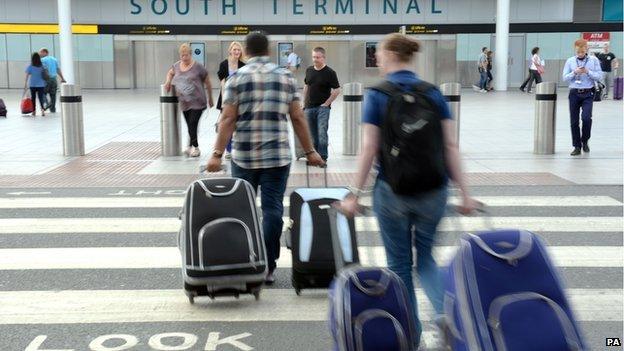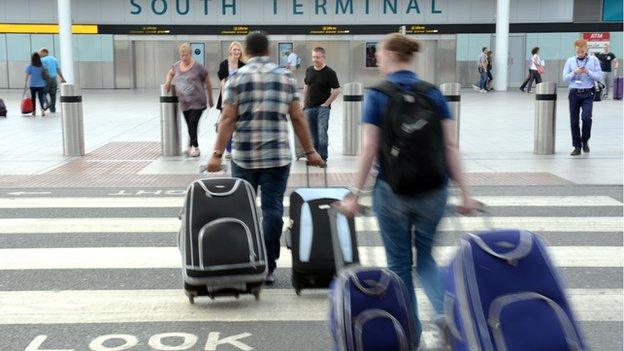Immigration figures show UK is increasingly European
- Published

Hallo, Ciao, Bonjour, Czesc! More and more EU workers
The latest release of migration statistics are part of the story of an open market economy in a globalised world.
But they also reveal the indirect effect of the UK's historic shift in focus from its own former empire to the continent on its doorstep.
Every year for the past two decades, more people have been arriving in the UK than leaving, external.
The reasons for those movements into the UK are complex because they have regularly changed thanks to global economic and political conditions.
The post-war movements were about a hunt for cheap labour from former parts of the British Empire.
Decades later, during Tony Blair's days in power, he tried to deal with sudden increases in people seeking asylum from the poorest parts of the world.
As the asylum route was restricted, the next great growth area was study - with large numbers of Asian students coming to colleges outside the university sector.
Today, many of those routes are restricted - but one remains open: the free movement of people for work inside the European Union.
The UK entered into that historic deal - and its effects can be clearly seen in figures on immigration and the population.
The open nature of the British economy and the European free trade area means businesses can recruit from a continental marketplace.
So as the British economy continues to grow faster than other parts of Europe, workers from across the EU have been choosing to come here to fill opportunities that are no longer available to workers from other parts of the world.

What does this mean for the future shape of the nation?
Pressure group Migrationwatch UK says that net migration is "simply not sustainable" at the current level, predicting it will put huge strain on infrastructure. While fears over that strain have lead to some real political challenges in England, the fears are not universally shared. The Scottish government, for instance, wants more migrants.
But putting aside that issue, separate data from the Office for National Statistics gives a fresh glimpse into the demographic changes that place Britain at the heart of Europe - and Europe increasingly at the heart of a new generation of Britons.
In 2004, approximately 9% of people living in the UK were born abroad. The figure now stands at just over 12%.
Go back 20 years, and the majority of those people were from India, Pakistan and the Caribbean.
But that is rapidly changing.
Today, there are about 2.5 million living in the UK who are current citizens of other European Union nations. This is the first time they have outnumbered people who currently hold nationalities from countries elsewhere. Polish citizens make up an estimated 726,000 of that group.
In 2013, around a quarter of births in the UK were to mothers who were born overseas - 185,000 bundles of joy and sleepless nights, all told.
But for four years now, women from Poland have been having more babies in the UK than any other expectant foreign-born mothers. Three of the top ten nationalities for new mothers are now European, rather than from parts of Africa or Asia.
So on two of the most important measures - new workers and new babies - the UK is not only becoming more diverse it is becoming more and more European.
- Published28 August 2014

- Published14 May 2014